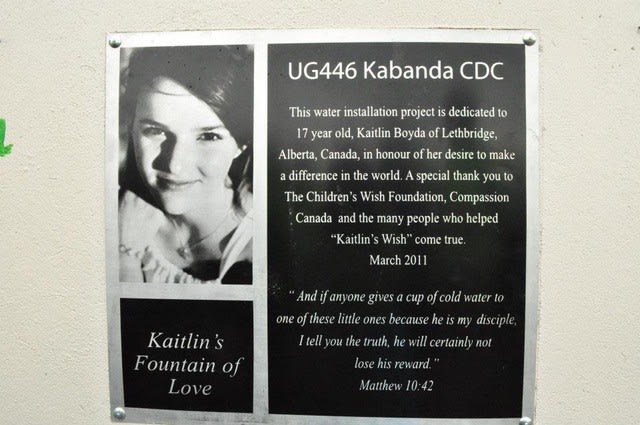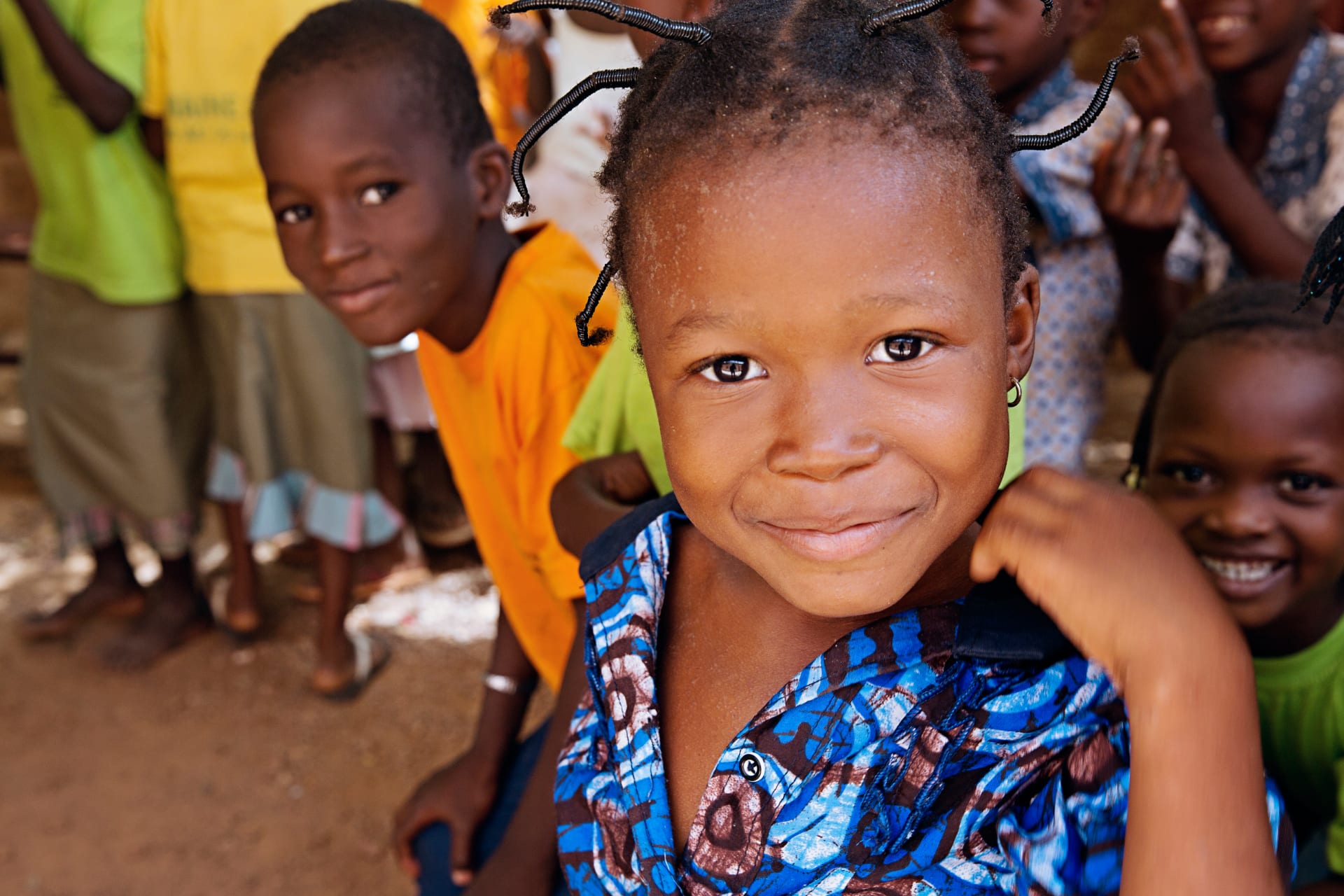Imagine this: Your tray table is folded up and you are fidgeting on the cramped fabric seat you were assigned. You tuck your elbows in, glue your knees together and lean towards the small window to your right.
Take-off was a little bumpy, but now you just have the buzz of the airplane jets humming you along through the clouds. A quiet settles over you, and suddenly all you can hear is one question over and over, like the plane itself is giving it rhythm.
What-are-you-going-to-do?
What-are-you-going-to-do?
What are you going to do?
This is the question that sparked Compassion to life. Reverend Everett Swanson sat in his airplane seat on his journey home from Korea, where he came face-to-face with the desperate need of children impacted by war, and he was compelled to answer this question.
As Compassion Canada celebrates 60 years, we remember this and see how God has stirred this question in the hearts of many, causing a movement of compassion to emerge and change the lives of children living in poverty.
Another question arises:
What does compassion look like?
Compassion looks like you.
It looks like a man choosing to sponsor a child.
And a child being known, loved and protected by their local church.
It looks like a woman giving a Gift of Compassion.
And a family receiving a life-changing gift that changes their story.
It looks like a church responding to an urgent need.
And a community receiving a life-saving intervention.
It looks like a business funding a Survival program.
And mothers and babies thriving in the most critical time of life.
It looks like each one of you who say: I’m going to do something to release children from poverty in Jesus’ name.
To celebrate 60 years with Compassion Canada, we want to tell this story—your story. Step into the stories of Compassion supporters and hear why they have chosen to put their compassion into action for children living in poverty.
Anna: A story of faithfulness
This faithful supporter has been sponsoring children with Compassion since its very beginnings in Canada.
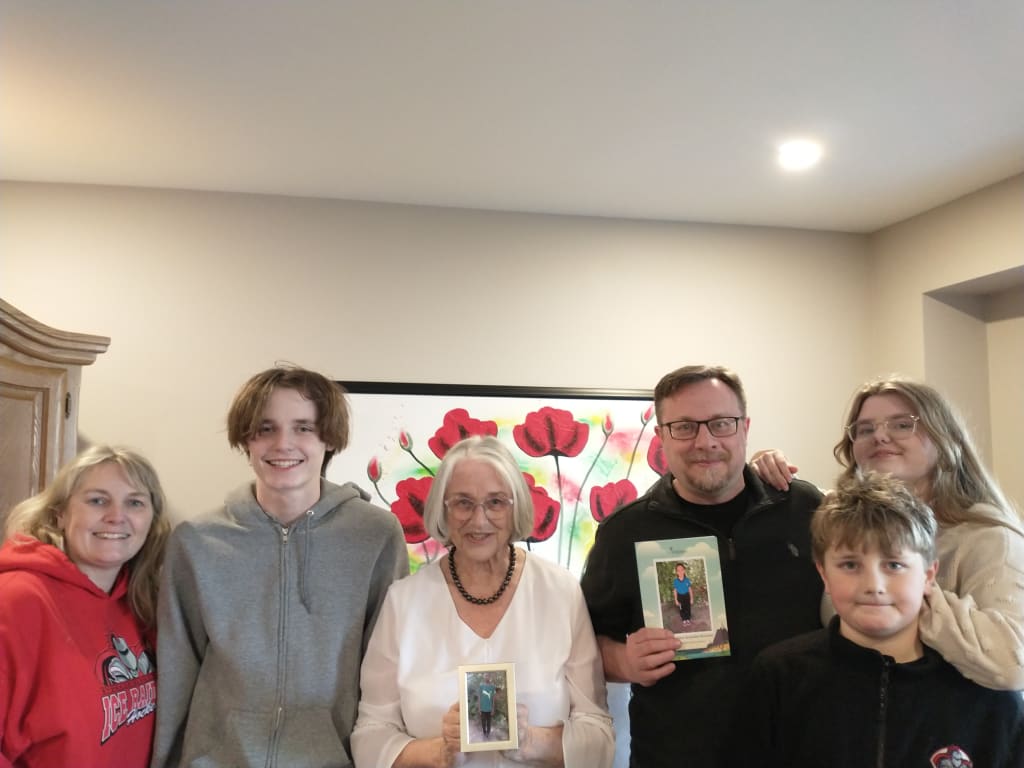
Anna (centre) with her son, daughter-in-law and grandchildren. They hold up photos of the children they sponsor.
Compassion Canada: Anna, you have been sponsoring with Compassion for a long time now! When did you begin sponsoring with Compassion?
Anna: It must have been in the mid-60s because it was before I was married, and I was married in 1967. It was just before that. My then-fiancé and I decided to sponsor because we saw an ad in the church newspaper.
We were in a congregation in Toronto, saw the ad, and I don’t remember what it was then, but most probably $5 a month, which at the time was still a lot of money, but we figured we could each manage $2.50.
That’s how we got started. It was easy. It was a little boy from Korea.
CC: What compelled you to sponsor with Compassion? Do you feel that reason is still present and compelling for you today?
Anna: I think it was just a case of them being in need. I’ve got the means to help out a little bit, so that’s what we’ll do and that’s still the case now.
Over the years, we have shared our positive experiences of working through Compassion and have seen others take on sponsorship as well, including my son and his family and people at our church.
Now I sponsor older kids or kids who are getting close to the end of their sponsorship time because I’m getting older and I don’t want them to suddenly lose their sponsor. It is written in my will that whoever I am sponsoring when I pass, is to be cared for and Compassion is to get the money till they graduate.
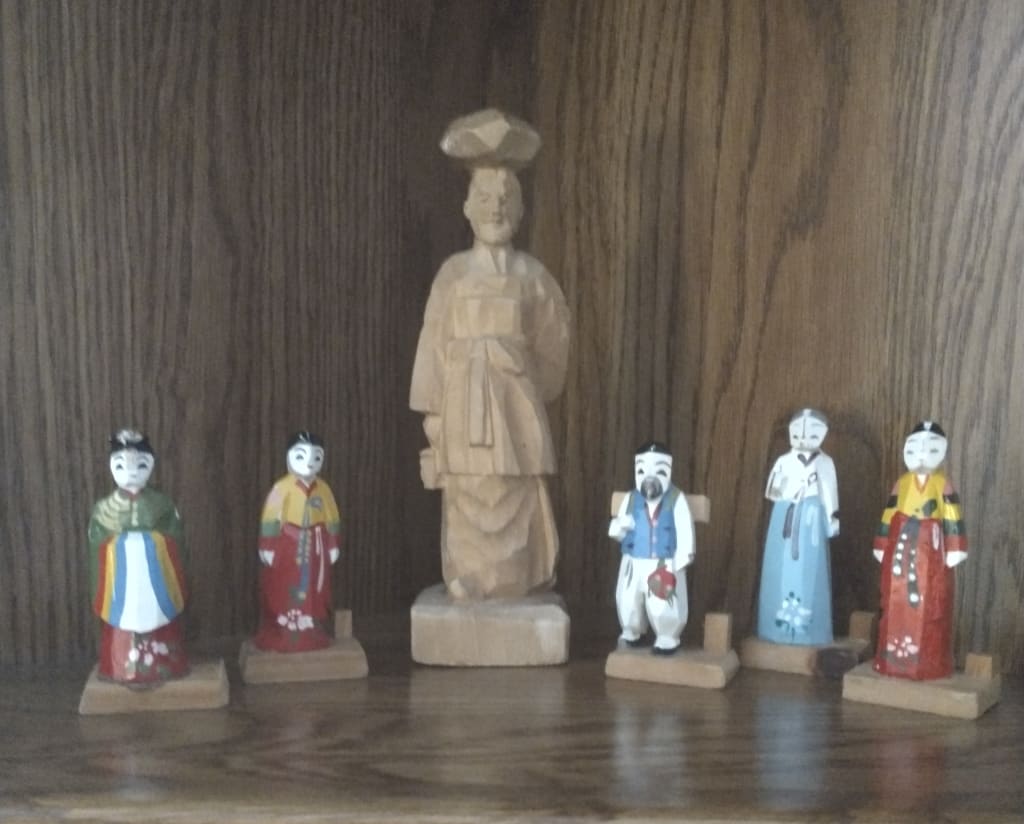
Anna received these handmade Korean gifts when she sponsored a child in the early days of Compassion Canada.
CC: When you think of all the changes that have occurred in Compassion’s ministry over the years, what’s the thing that you feel has been your anchor as a sponsor?
Anna: I think the fact I value is that Compassion is not afraid to preach the gospel, but it’s in a way that also meets the physical needs of the children and that Compassion works through local churches. Compassion works with people who are there already, which to me is really important because they’re the ones who can keep it going, even if the agencies are asked to leave.
John, May and Norah: A story of mission
This family brings their family values to life as Compassion supporters.
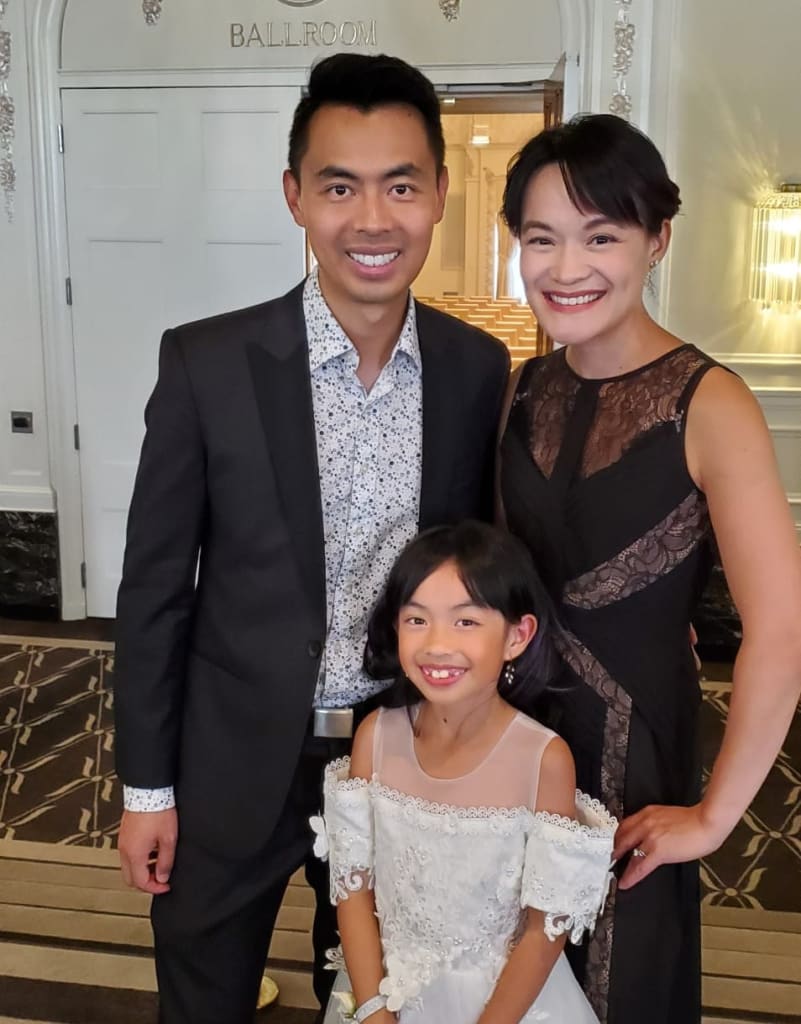
John shares how he, May and their daughter, Norah, have created a family culture of compassion.
CC: As we celebrate Compassion Canada’s 60th anniversary, we are focusing on the themes of legacy, impact and relationship. We see these themes in your family’s story! We would love to hear how these themes come to life for you… What lasting legacy do you hope your partnership with Compassion will produce for children around the world? What about in your own family?
John: We really value all the work that Compassion does around the world. It’s not easy trying to break through all the barriers, but seeing the system that Compassion has is like, “Oh, wow, God’s at work.”
It’s also nice to see the love and happiness we get to share with our sponsor child’s family. They feel so appreciative. We get to see how our contribution is helping them directly, which is great for us.
We partner with Compassion, but I also kind of feel like we’re just one very small part of the bigger picture. But despite that, despite how small we are, we also see how big of an impact we are having for a family and their community. And we wouldn’t have been able to do it just within our family. We needed to partner up with an organization like Compassion to make that happen. So, yeah, we see how the investment is growing right before our eyes, and it’s great to see how everything unfolds.
CC: Can you describe what impact means to you and your family in light of your values?
John: When we started our family, we wanted to treat it like a ministry. We didn’t want to just do what other families do—get married, have kids, and go on vacation and just do life within the family. Nothing wrong with that. But we wanted to see the skills that we each have within our family and know where we are in the community and in the world to be fully utilizing those skills and gifts. Fortunately, one of the gifts we have is the generous heart to donate and to help out through Compassion and our local church as well.
It allows us to show Norah that life is so much more than just the everyday Sunday to Saturday—going to school, classes and then extracurricular activities. There is so much more that can be done as long as there is that mentality. If you’re not thinking about mission opportunities, then that is not going to happen. But for us, having that ministry mindset, then it’s like, okay, it’s not just the three of us. It’s us, our community and wherever God leads us. Like I said, we’re seeing it happen in front of us and having a big impact around the world with those that we connect with.
Pastor Charles: A story of partnership
For Pastor Charles and New Hope Fellowship, partnership with Compassion is about a shared value to fulfill God’s mission together.
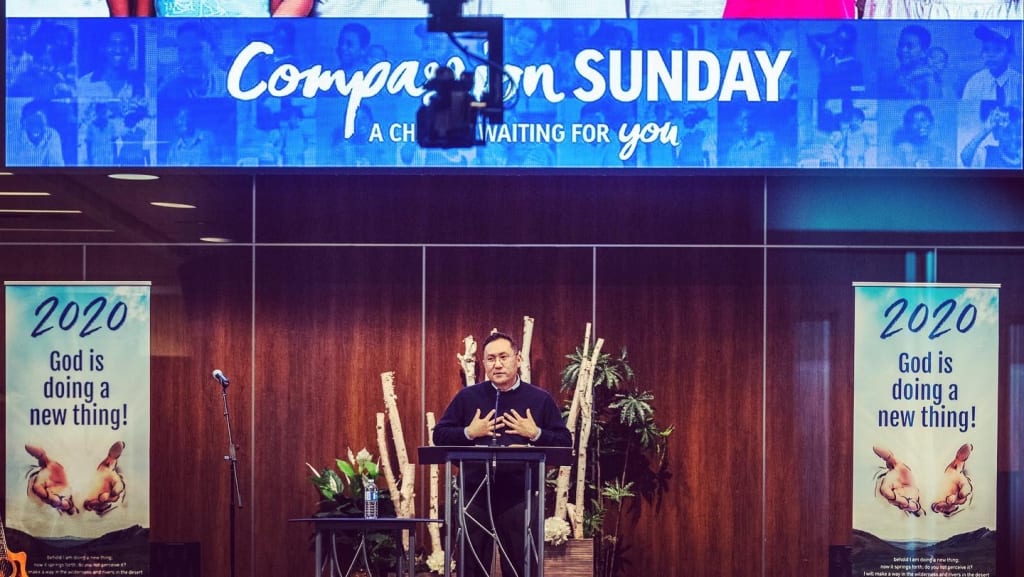
Pastor Charles speaking to his church on a Compassion Sunday at New Hope Fellowship.
CC: As we celebrate Compassion Canada’s 60th anniversary, it has us remembering our ministry’s history and roots in South Korea. From what you know about of Compassion’s origins, how does this piece of our history resonate with you and your congregation as a Korean diaspora church?
Pastor Charles: I’m aware of Compassion’s origin to be something that started in Korea after the Korean War. And so now for Korea to be one of the biggest supporting countries—it’s amazing. It’s a beautiful story of God’s redemption because a country that was so poor and in need of so much support and help and compassion from other countries is now extending that grace and compassion to children of other nations. That’s a beautiful story.
That history resonates as our church is one of many Korean immigrant churches, as a diaspora of Korean churches across the world. As we look back on how we began with a few small Korean immigrant families, and now we have grown to be a multiethnic, multilingual, multicultural church that welcomes people of many different nations. We are mindful of how much God has been good and faithful to us, and so now we want to be a blessing to people of other nations, especially people who are coming from displacement as refugees to this country. And so, yeah, I think a lot of people would want to participate in this ministry, knowing that history. Compassion definitely does have a place in our hearts.
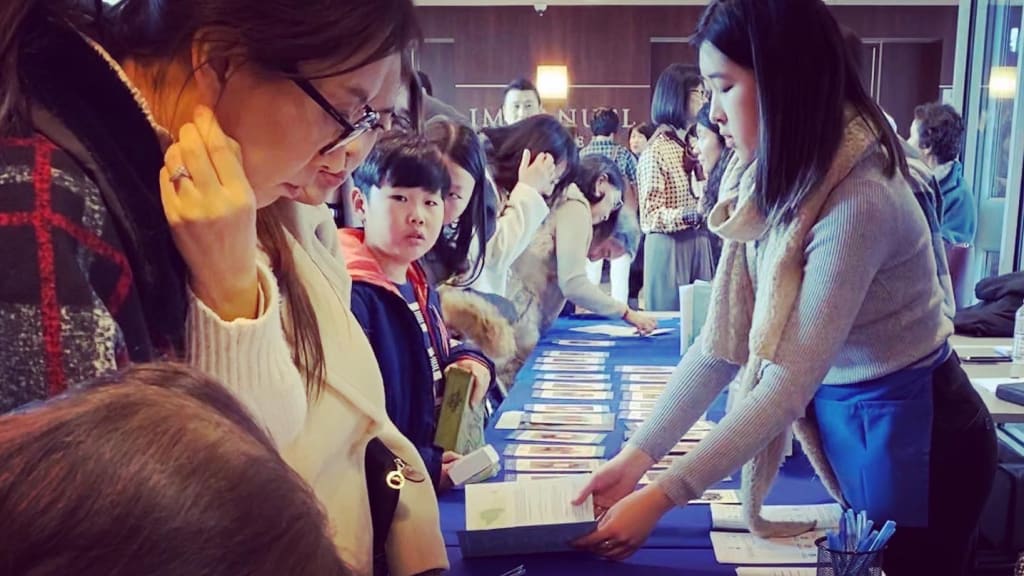
New Hope Fellowship members at the Compassion table.
CC: What do you see as the significant pillars of our partnership in mission? How do those things empower your church to create an impact?
Pastor Charles: One thing that we value as a church when it comes to partnership is trust and a shared value to fulfill God’s mission together. When it comes to trust, I think Compassion is considered to be, by us, one of the most trustworthy organizations. We trust the organization especially because Compassion works not on its own but with local churches here and abroad. We appreciate the fact that Compassion works with local churches to disciple children in the next generation because we value the local church and local church’s ministry.
At the end of the day, it is people. It is people who come to know Jesus Christ personally and become the human beings that he or she is designed to be—flourishing in many different ways, spiritually, physically, mentally, relationally, vocationally. If the church is about making disciples of all nations, I think the legacy and the impact that we want to see through our ministry and our ministry partners is the transformation of people.
So, for instance, Compassion—it’s not just about releasing people out of poverty, but “in the name of Jesus.” We are talking about the holistic salvation or restoration or redemption of people, their families and the nations. For me, the impact that we seek is the power of the gospel impacting people.
Brenda and Kaitlin: A story of legacy
Brenda has a special connection to Compassion through the legacy of her daughter, Kaitlin.
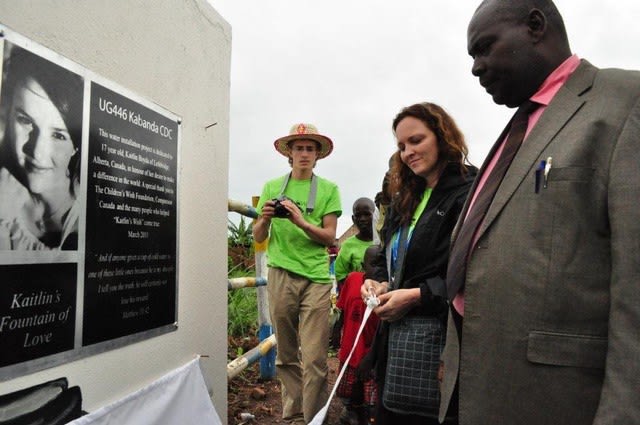
On a special trip to Uganda, Brenda visits one of the wells that Kaitlin’s Wish helped build.
CC: Just over 13 years ago, Compassion became an incredibly meaningful part of your story through your daughter Kaitlin’s, life. Can you give us a snapshot of what you and Kaitlin were experiencing at that time?
Brenda: It was Christmas time, and Christmas was one of Kaitlin’s favorite holidays. But she was quite sick by then. She had been sick for about 18 months with a brain tumour and we had known all along that it was a terminal diagnosis. She had made a decision in November that she wanted to go to New Zealand as a family through Children’s Wish.
Kaitlin just came downstairs one evening and said, “If I take this Wish for myself, it will be a waste. I need to do something different with it.” She felt strongly in her heart she could not do the Wish that she had asked for. We talked about it a lot as a family. And I remember us talking about giving it to help an African village.
Compassion had water well projects going on in Uganda at the time. God had his hand in it. The Wish from Children’s Wish was approximately $7,500 so we decided we could fundraise to get the extra money because a well was around $10,000 at that time.
I truly believe it was Holy Spirit prompting Kaitlin to think a bit. She had talked about legacy, like, “How will people remember me, mom?” Or, “What will people say when I’m gone?” And that had been part of our conversations prior to this.
As a mom, I was impressed by her faith. She was not only my daughter, but she’s my sister in Christ as well. It makes you sit back and wonder, what are you doing for eternity? I think you question that, and it’s not a bad thing to question that, because at the end of the day, only what we do for Christ matters on this earth. The rest is really not important.
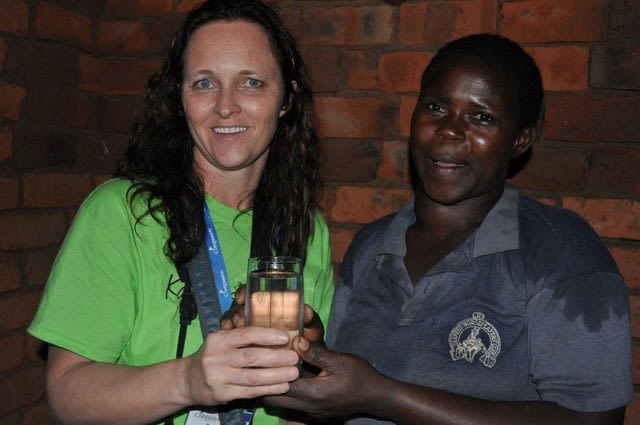
Brenda holds a cup of water from one of the wells in Uganda that Kaitlin helped fund.
CC: Just like Compassion became a meaningful part of your family’s story, Kaitlin has become a meaningful part of Compassion’s story. As we celebrate our 60-year milestone in Canada, we are reflecting on the relationship we have with inspiring people like Kaitlin. How do you feel Kaitlin would feel about knowing she is a cherished part of Compassion’s story?
Brenda: Well, I can speak on Kaitlin’s behalf in that regard, because there’s an interview that was done about six weeks before she passed away. In the interview, they asked her that question, and she says, it’s humbling. It’s not her generosity but the generosity of others that have allowed this. So, she would be completely humbled by that.
CC: How would you finish this sentence: Your compassion can…
Brenda: I believe your compassion can change a life and generations to come. When I think about the wells in Uganda, I think about the children who survive because the water is clean and how they go on to have families and impact thousands and thousands. Showing compassion for one person can change the generations to come.
